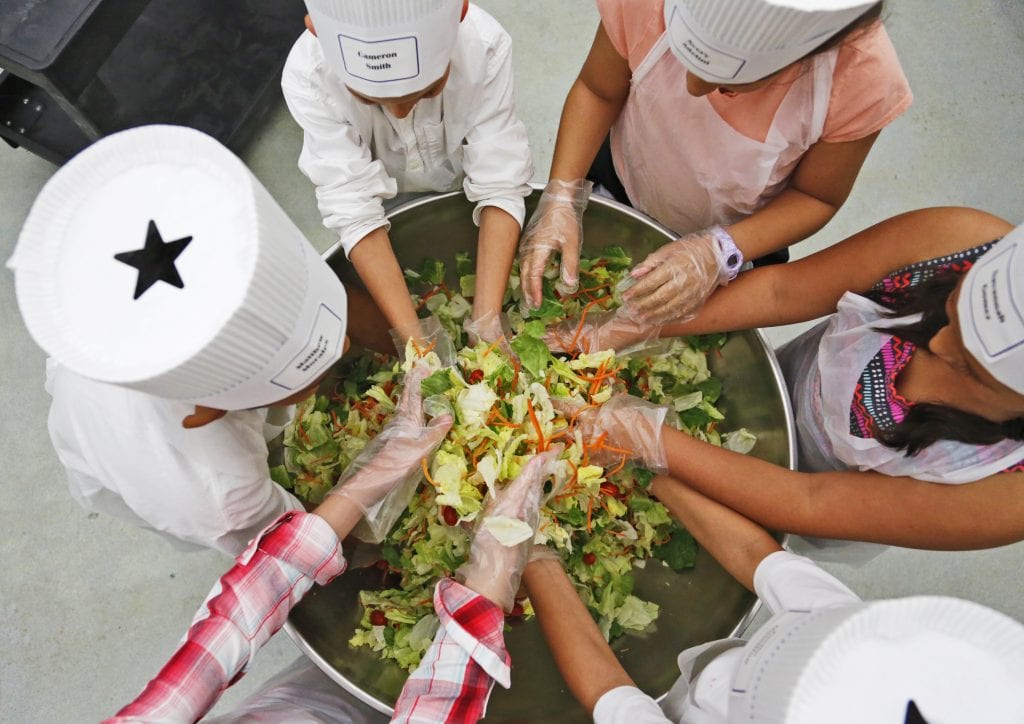In some school districts throughout the country, students who do not have money to pay for school lunches are forced to take a smaller meal of fruit, vegetables and milk.
This process of “meal shaming” is done in an effort to get parents to pay for their meals and settle their debts with school districts.
However, a bill moving through the California Legislature is hoping to end this process of lunch shaming by requiring districts to feed all students regardless if they have money or unpaid meal bills.
Senate Bill (SB) 250 was introduced by Sen. Robert M. Hertzberg (D-Van Nuys) and co-authored by three California Assembly Members and three California Senators, including Sen. Scott Wilk (R-Santa Clarita).
“We must stop school lunch shaming and create a different approach for tackling lunch fee debt,” Hertzberg said in a statement. “We want to make sure that kids, no matter how poor their families may be, get a nutritious lunch and the energy they need to succeed in school.”
SB 250, or the Child Hunger Prevention and Fair Treatment Act, would require schools that provide meals through the National School Lunch Program or the School Breakfast Program to ensure that students are not shamed, treated differently or served different meals if they have unpaid school meal fees.
The bill would prohibit school personnel and volunteers from allowing disciplinary action against a student in the denial or delay of a nutritionally-adequate meal.
It also would require schools to notify parents of guardians of the negative balance on their meal account no later than 10 days after the negative balance appears and would require districts to publish their policies to collect debts from parents who have not paid their meal fees.
If it is later determined that a student is eligible for free or reduced-price meals, then the school district would be reimbursed for the cost of those meals through a state-mandated local program, according to SB 250.
Supporters of the bill include the Children’s Defense Fund of California and the Western Center on Law and Poverty.
“California’s school nutrition professionals are some of the best in the country,” said Jessica Bartholow, of the Western Center on Law and Poverty, in a statement. “This bill will help clarify rules for them, families and for kids when school lunches go unpaid and remove opportunities for school children to be shamed or go hungry in the school environment.”
In the Santa Clarita Valley, four of the area’s five school districts—Castaic, Newhall, Saugus and Sulphur Springs—receive meal services from the Santa Clarita Valley School Food Services Agency (SCVSFSA).
“We don’t turn anyone away or take any meals away,” said Lynnelle Grumbles, Chief Executive Officer of SCVSFSA. “It certainly is our position that we want every child to eat every day and we feel that the meals we provide helps them learn in the classroom.”
SCVSFSA’s policy, however, does offer reduced meals after a student has received three full, unpaid meals. Then students are told to eat from the salad bar and receive a carton of milk.
“On the fourth meal they can eat from our salad bar,” Grumbles said. “They don’t get a full meal but they can take as much as they want off the salad bar and they get a carton of milk.”
When this occurs, SCVSFSA employees and volunteers encourage the students to call home and allow parents to make automatic payments online. They also offer to assist parents or guardians with completing an application for free or reduced-price meals if they need it.
Grumbles said the agency does not have a position on SB 250 at this time.
SB 250 unanimously passed through the California Senate May 31. It is currently in the California Assembly Appropriations Committee.
[email protected]
661-287-5575
On Twitter as @_ChristinaCox_








